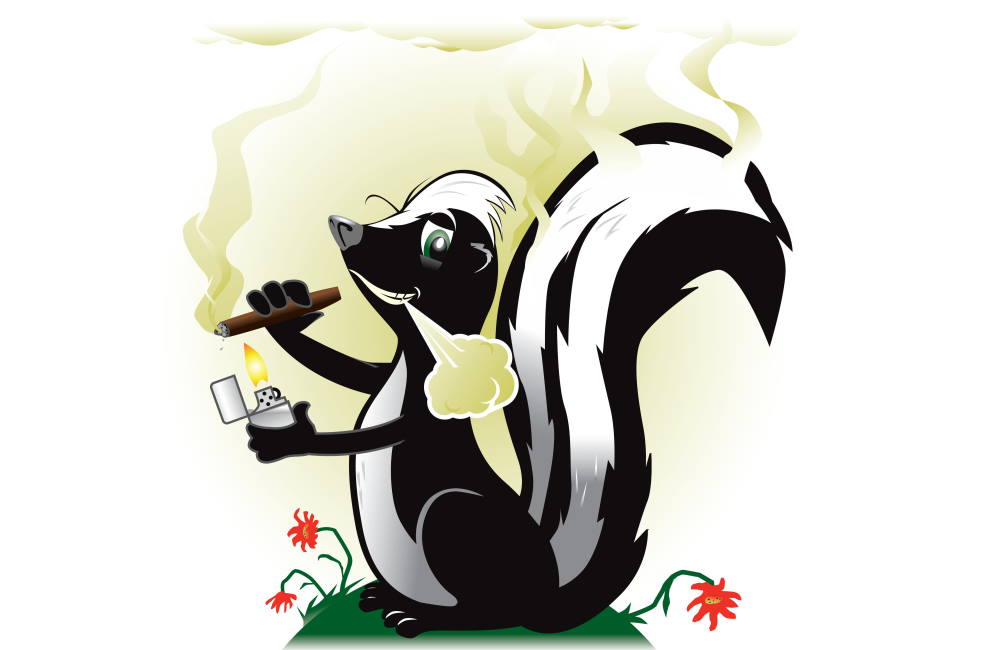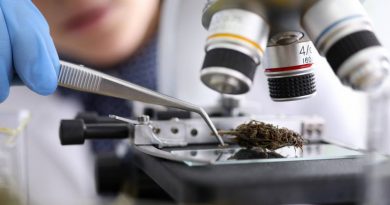Why Does Skunk Weed Smell That Way?
The modern marijuana market contains every type of edible, device, accessory, beverage, paraphernalia, tablet, lotion and oil you can imagine. It’s come a long way very quickly (there is even cool cannabis gear and lifestyle products). But one thing it hasn’t done is change the way cannabis smells.
That’s fine, in most cases. Cannabis fans are fans of the fragrance of burning marijuana. But there’s one type of weed – most commonly referred to as skunk weed – that is noticeably more pungent than others. It’s not necessarily a bad thing, but it is definitely a thing, and many people through the years have wondered why.
Scientific research provides some answers, but there’s still much that is unknown and some disagreement.
What Puts the “Skunk” In Skunk Weed?
The main suspect in the skunk weed smell investigation is something called thiols. They are chemical compounds that have a composition similar to the composition of alcohol. However, rather than having an oxygen atom, thiols have a sulfur atom. This makes all the difference.
Skunks – the real ones, the animals – have evolved to put thiols to use. They are one of the primary chemical compounds in the defensive and extremely smelly spray that skunks deploy. It repels potential predators, including humans, who can detect thiols at lower levels, meaning that a little thiol can overwhelm everything else, according to Discover magazine.
Thiols are involved in many of the smells you likely remember well, and for the wrong reasons. They are in freshly chopped onions, which is fine. But they also are present in petroleum and natural gas, where they are “objectionable because they have disagreeable odors, interfere with catalysts used in refining processes, and produce sulfur dioxide upon combustion,” according to Brittanica.com.
Some research indicates that thiols may be responsible for the odor of skunk weed. It’s also the reason that your beer might taste a bit “skunky: at times. However, experts in the cannabis industry say it involves another naturally occurring chemical compound in cannabis called terpenes.
The Relationship Between Hops and Cannabis
Both hops and cannabis naturally produce thiols, according to research done at Iowa State University. That means that skunk weed has something in common with both the liquid spray from skunks and that smelly beer you drank outside. (The “outside” part is key with beer. When some beer is exposed to sunlight, it causes a chemical reaction that can turn a beer skunky).
Both hops and cannabis also produce terpenes, chemical compounds that produce fragrances and many health benefits in marijuana. Terpenes exist in everything people can taste or smell.
It is these terpenes that people in the cannabis industry typically attribute the skunk weed smell. While they produce an odor that is similar to thiols, they have no relationship to them.
So, research still hasn’t answered the question, although both terpenes and some type of thiol are behind the odor. What’s interesting, as pointed out by Discover, is that these smells are often good ones to many people. Sometimes it can depend on the amount. A little of the terpene pinene provides a pine smell that is refreshing. A lot of it, like in turpentine, which carries a high concentration of pinene, is overwhelming.
Scientific research will no doubt answer the question of skunk weed definitively one day. However, it’s important to note that many cannabis users feel positive about the smell, because it usually indicates a potent strain of marijuana. That’s the main reason some of the most highly sought strains in the cannabis industry have “skunk” in the title.




